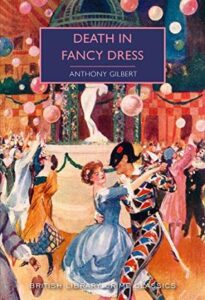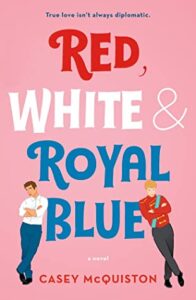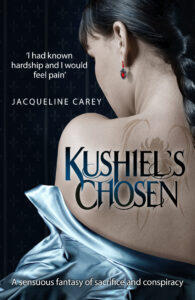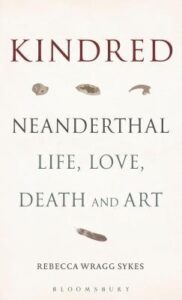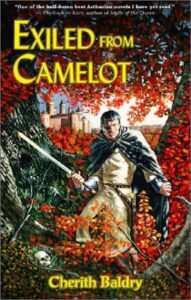 Exiled from Camelot, Cherith Baldry
Exiled from Camelot, Cherith Baldry
I reread this to prepare for a discussion with other Arthurian enthusiasts, and actually livetweeted the reading experience — which means I have very extensive notes on this, compared to my normal readings, and that now I’ve read this twice with a rather analytical eye: once for my dissertation, and this time for fun.
So, anyway! Few people know about this novel, and it’s not like I’d actually propose adding it to the Arthurian canon as a must-read — but it’s particularly interesting for me because of how it handles both Sir Kay and Sir Gawain, both knights who were in the Welsh tradition (as Cai and Gwalchmai) and then suffered a reputational loss as the stories moved to England and then the Continent. Partly this is because they were old characters who already had stories attached, so obviously those who wanted to write new stories generated their own characters, like Lancelot. And partly it’s because both of them are really strongly tied to Arthur himself, and in medieval times it was better to criticise the king at a slight remove — by criticising his cousin, or his steward, and showing them to be cowards or louts.
Exiled from Camelot instead rehabilitates both of them: Kay by reframing his sharp tongue and betrayal of Arthur, and Gawain by just ignoring the rude stuff other people have said about him. The book sees Kay as the character of a modern novel in a chivalric world that doesn’t understand him: a sensitive man, and one who has worth outside of his knighthood as a manager of men, as a domestic figure. Kay shines in this novel when he is arranging a household and making the wheels of diplomacy run smoothly… and he’s a whimpering mess when he faces sorcery and hatred (though Baldry is careful not to make him contemptible: in a flat-out fight he’s afraid, but he wants to stand at Arthur’s side, and he does have the training to face his foes).
Kay is also in love with Arthur. I mean, that’s never explicit — the fact that he loves Arthur is, but they keep talking about brotherhood when Kay wants to clutch Arthur’s clothes and knows what his hair smells like. There’s a lot of subtext between Kay and Gawain as well, to the point where I wanted to yell at Kay about how Arthur’s the wrong man for him. That aside, the strong relationships between the characters — particularly Gawain, Kay and Gareth, and to some extent Arthur and Kay (though less so because Arthur spends too much time irrationally being a dickhead) — are a real highlight for me.
All in all, I find it a lot of fun, even though it’s not exactly influential or anything like that: it encapsulates a lot of what I enjoy about modern, sympathetic takes on various Arthurian knights.
Rating: 4/5
 Word by Word, Kory Stamper
Word by Word, Kory Stamper
